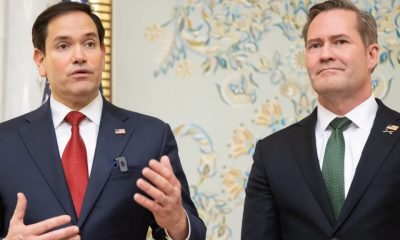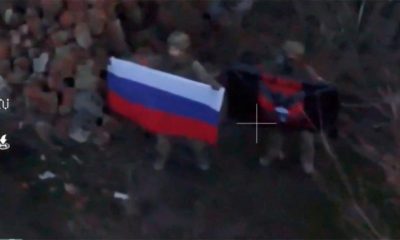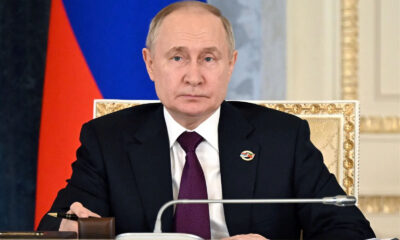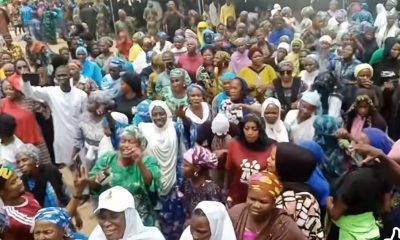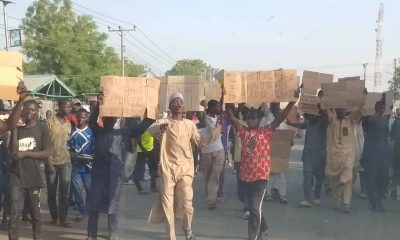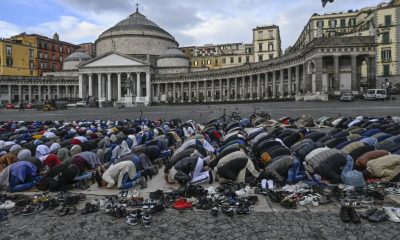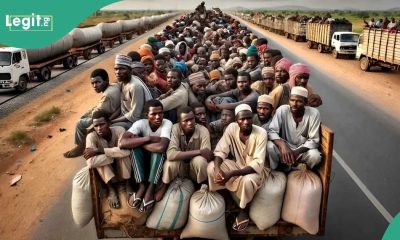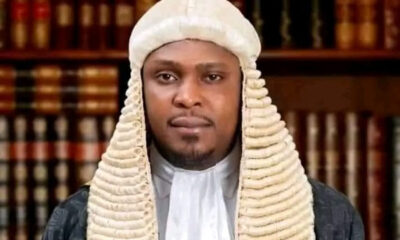“Iran does not want to do this, but… (it) will have no choice,” he added.
“If at some point you (the US) move towards bombing by yourself or through Israel, you will force Iran to make a different decision.”
In an interview on Saturday, Trump had said “there will be bombing” if Iran did not agree to a new nuclear deal, according to NBC News, which said he also threatened to punish Tehran with what he called “secondary tariffs”.
Trump’s language represented a sharpening of his rhetoric, though it was not clear whether he was threatening bombing by US planes alone or perhaps in an operation coordinated with another country, possibly Iran’s nemesis Israel.
“They threaten to do mischief,” Khamenei said of the remarks during a speech on Eid al-Fitr, the holiday marking the end of the Muslim fasting month of Ramadan.
READ ALSO:
“If it is carried out, they will definitely receive a strong counterattack.”
Iranian foreign ministry spokesman Esmaeil Baqaei, in a post on X, said the threat was “a shocking affront to the very essence of international peace and security”.
Baqaei warned of unspecified “consequences” should the United States choose a path of “violence”.
– ‘Glass room’ –
A statement on Monday also said the foreign ministry summoned the charge d’affaires of the Swiss embassy, which represents Washington’s interests in Iran, “following the threats by the US president”.
“The Americans have at least 10 bases in the region around Iran, and they have 50,000 troops,” warned General Amirali Hajizadeh, commander of the aerospace force of Iran’s Islamic Revolutionary Guard Corps.
“Someone who is in a glass room shouldn’t throw stones at anyone,” the man in charge of Iran’s ballistic missile programme threatened on state television Monday.
Since taking office in January, Trump has reinstated his “maximum pressure” policy, which in his first term saw the United States withdraw from a landmark agreement on Iran’s nuclear programme and reimpose sanctions on Tehran.
Western countries including the United States have long accused Iran of pursuing a nuclear weapon, which Tehran has denied, insisting its enrichment activities were solely for peaceful purposes.
The 2015 nuclear deal between Tehran and world powers required Iran to limit its nuclear ambitions in exchange for sanctions relief.
– ‘Indirect’ channel –
On March 7, Trump said he had written to Khamenei to call for nuclear negotiations and warn of possible military action if Tehran refused.
READ ALSO:
The letter was delivered to Tehran on March 12 by UAE presidential adviser Anwar Gargash, Iranian news agency Fars reported at the time.
On Thursday, Iranian Foreign Minister Abbas Araghchi said the country had delivered a response via intermediary Oman, without detailing its content.
Araghchi said Iran would not engage in direct talks “under maximum pressure and the threat of military action”.
In his remarks, however, the minister left open the door for “indirect negotiations”.
According to NBC, Trump also said US and Iranian officials were “talking,” but he did not give details.
President Masoud Pezeshkian on Sunday said Khamenei, who as supreme leader has the final say in major state policies, had permitted indirect talks.
Oman has served as an intermediary in the past, in the absence of US-Iranian diplomatic relations severed after the 1979 Islamic revolution.
On Monday, Araghchi said the United States had received Iran’s letter.
“We have been informed by our friends in Oman that the letter has reached its destination and has been read.”
Beyond its nuclear programme, the West also accuses Iran of using proxy forces to expand its influence in the region, a charge Tehran rejects.
“There is only one proxy force in this region, and that is the corrupt usurper Zionist regime,” Khamenei said, calling for Israel to be “eradicated”.
Iran warns US against attack, threatens with nuclear weapon




